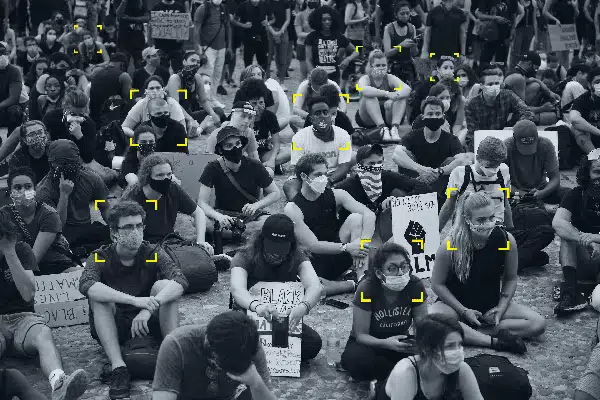Does Getting Arrested at a Protest Show up on an Employee Background Check?

Protests decrying police brutality brought on by the murder of George Floyd have spilled into another week, and across all fifty states.
Video evidence shows that these protests have been mostly peaceful, and that violence that has been committed has largely come from police officers themselves. But a massive number of people are still getting arrested across the country for minor offenses like being out past city-wide curfews and obstructing traffic. Many of these cases will likely be thrown out — but not all of them.
Even if an individual case is waived in court, the arrest alone has the potential to affect that person's employment for years to come if it turns up on a routine background check.
“The majority of individuals screened by companies are going to include arrests that didn’t lead to convictions on their background reports,” says Elizabeth Mclean, general counsel for Silicon Valley-based background check company GoodHire. “It’s up to employers if it informs their hiring decision or not.”
For those who have only been on the applicant side, employee background checks can feel like a bit of a mystery.
While there is no one-size-fits-all approach for background searches, Mclean notes that all screeners are looking through the same databases to find information on arrests that happened within the last seven to ten years.
“It’s pretty standard for employers to order checks on government watchlists, sex offender registries, and the National Criminal Database,” she says.
Some convictions like violent crimes and sex crimes will stay with applicants for their entire lives, since those crimes require registration, while misdemeanors like disorderly conduct (i.e. blocking traffic) tend to only appear for seven years as per the Fair Credit Reporting Act. But those seven years can be a long time — especially for young activists who are just starting their career.
Employers use background checks to inform their hiring decisions — namely, whether or not an applicant has anything on their record that could interfere with the job or company culture. Lenient employers might be willing to overlook minor infractions, though some businesses in traditionally conservative industries, like banking, may have zero-tolerance policies for criminal activity. To put it plainly: you can be denied employment for anything on your record that stands out to hiring managers.
Still, employers have a choice as to what data they request from screening companies. And while many still want to see anything and everything in an applicant's personal record, other companies opt to keep non-convictions and cases that were thrown out by a judge off of searches.
“There’s a growing number of companies that only want to get data directly related to the job and have their own internal policies around not considering certain information,” says Mclean.
These types of internal policies can help even the playing field for marginalized applicants, particularly black candidates, who are disproportionately targeted and arrested by police. But they’re not mandated by law, so even though the Equal Employment Opportunity Commission urges businesses to leave non-convictions off of background checks. Certain states like California have in essence banned the practice, but it is still required to include non-convictions in the case of positions that could affect the safety and wellbeing of others.
GoodHire, for its part, leaves out arrests that don’t lead to convictions as a matter of company policy.
“Screeners have a choice to give employers exactly what they want or take a look around at what’s happening in the country and take a stance,” says Mclean.
A previous version of this story stated that California has banned the practice of including non-convictions in its entirety.
More From Money:
The Cost of Being Black: 33 Facts About the Wealth Gap and Racial Economic Justice
Protests Are Raging in America’s Biggest Cities. So Why Is the Stock Market up?
How to Decide Where to Donate Money and Make an Impact Right Now
